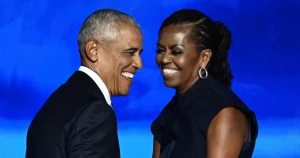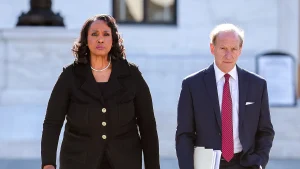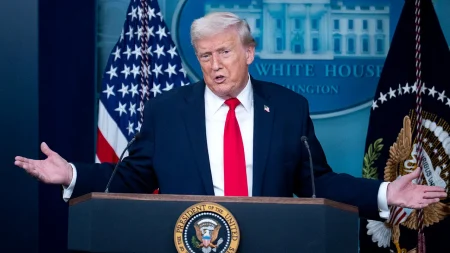The Unexpected Alliance: Trump and RFK Jr.
In an era marked by stark political divisions, the emerging relationship between former President Donald Trump and Robert F. Kennedy Jr. represents one of American politics’ more unexpected developments. Despite coming from vastly different political traditions – Trump from the business world and Republican politics, Kennedy from one of America’s most storied Democratic dynasties – the two men have found common ground on several key issues. Their alignment showcases how contemporary political alliances increasingly transcend traditional party boundaries, especially around issues of institutional trust, government power, and personal freedom.
The foundation of this unlikely political friendship appears built on shared skepticism toward what both men characterize as the “establishment.” Both Trump and Kennedy position themselves as outsiders challenging entrenched power structures in Washington. Trump’s “drain the swamp” rhetoric finds a parallel in Kennedy’s criticisms of regulatory agencies and pharmaceutical companies. This shared framing as truth-tellers fighting against powerful interests resonates with their respective supporters who feel disenfranchised by mainstream politics. While their specific targets sometimes differ, their fundamental message taps into a growing public sentiment that traditional institutions have failed to serve ordinary Americans faithfully.
Perhaps most significantly, Trump and Kennedy found alignment during the COVID-19 pandemic, when both expressed skepticism about public health measures and vaccine mandates. Kennedy, long known for questioning vaccination policies even before the pandemic, found a receptive audience among many Trump supporters who resisted government-imposed health restrictions. Trump, while initially promoting Operation Warp Speed to develop vaccines, later criticized mandates and embraced rhetoric questioning aspects of the pandemic response. This convergence allowed Kennedy to reach new audiences within Trump’s base, while Trump could appeal to Kennedy’s followers who prioritize medical freedom and personal choice – creating a politically valuable overlap between their constituencies.
Beyond specific policy positions, both men employ similar communication styles that emphasize personal authenticity over conventional political polish. Trump’s unfiltered approach to communication mirrors Kennedy’s willingness to make controversial statements that political consultants might advise against. Both present themselves as truth-tellers willing to say what others won’t, regardless of potential backlash. This shared rhetorical approach creates a stylistic similarity that makes their alliance seem more natural to supporters than their different backgrounds might suggest. Their followers often praise both men for “telling it like it is” – a quality increasingly valued in an era of carefully managed political messaging.
The strategic advantages of this relationship are clear for both parties. For Trump, Kennedy’s environmental credentials and famous family name provide potential inroads with voters who might otherwise dismiss the former president. Meanwhile, Kennedy gains access to Trump’s massive platform and devoted following as he attempts to build political relevance beyond his traditional advocacy work. Their mutual support, whether through public appearances together or complementary messaging, creates a powerful cross-pollination effect between their respective supporter bases. Though they maintain distinct political identities, this alliance allows each to expand their reach beyond traditional constituencies.
Critics observe that this relationship fundamentally represents an alliance of convenience rather than deep ideological alignment, pointing to numerous areas where Trump and Kennedy hold dramatically different positions. Environmental policy, social welfare programs, and economic regulation represent just a few domains where their historical stances diverge significantly. Yet in today’s fragmented political landscape, these partial alignments increasingly define political cooperation. The Trump-Kennedy relationship demonstrates how contemporary political alliances form around specific shared grievances and mutual interests rather than comprehensive ideological agreement. Whether this partnership represents a fleeting political convenience or the beginning of a more substantial realignment remains to be seen, but it undoubtedly reflects the continuing evolution of American political coalitions beyond traditional party boundaries.








